Introduction #
I’ll admit it–Clash of Decks caught my attention when it first popped up on Kickstarter in 2021, claiming to be a “real FREE-TO-PLAY card game.” Naturally, I was skeptical at first thinking I had clicked through to a mobile game project–a Clash of Clans or Clash Royale clone loaded with microtransactions and annoying ads.
Turns out, this wasn’t some digital cash grab. Grammes Édition, a small French publisher, had actually figured out how to produce their print-and-play game into a physical card game and managed to ship it for free (well, minus a couple of euros for shipping). That’s how they got 20,000 backers worldwide to bite. So, naturally, I took the plunge, albeit cautiously. And they delivered–a Kickstarter that lived up to its promise.
The game’s origin story is great, but what really matters is how it plays. Does Clash of Decks live up to the hype? My score for this review will be primarily focused on the solo game experience, but I include some commentary about multiplayer too.
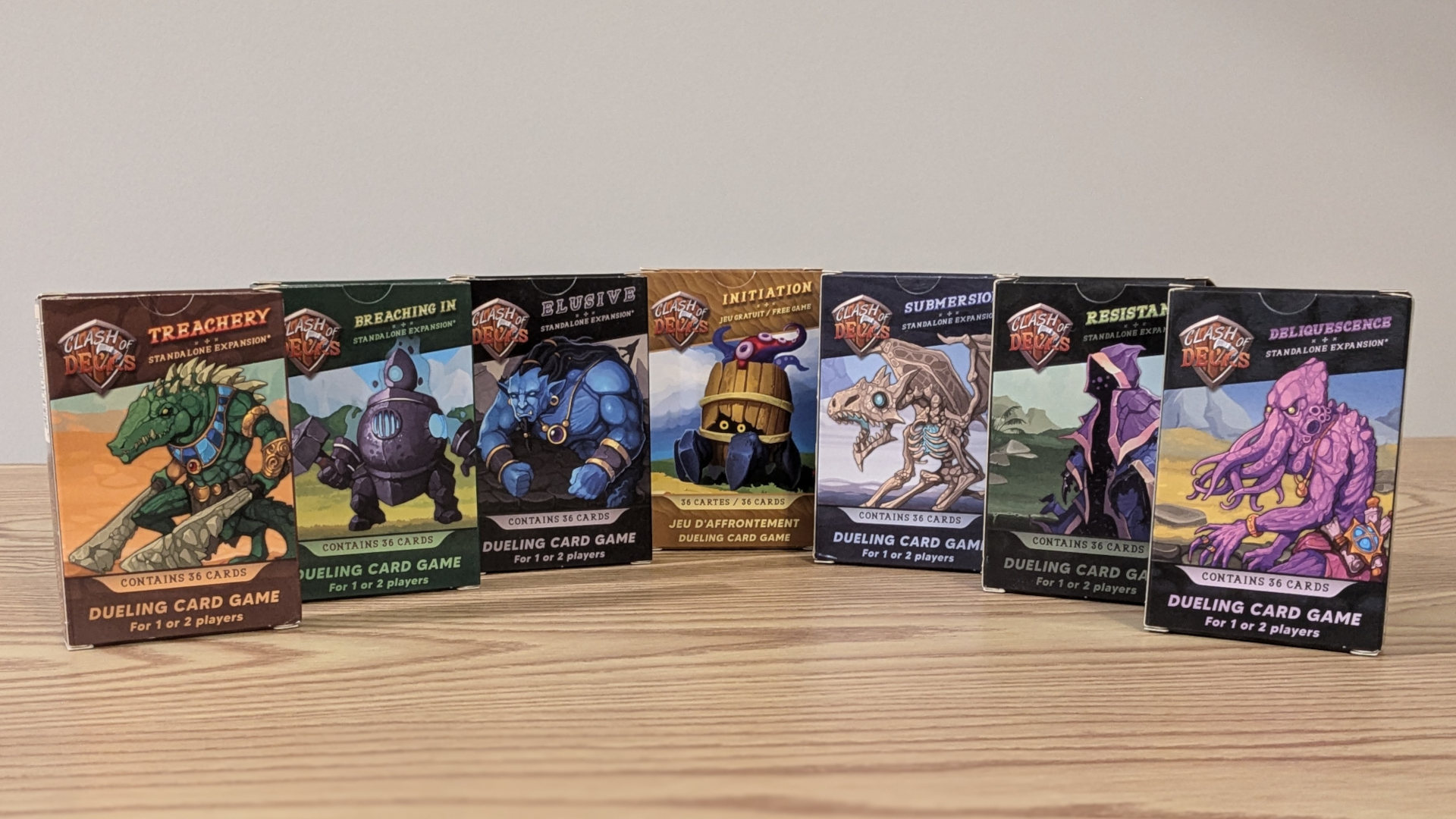
Overview #
At its core, Clash of Decks is a small, punchy card-dueling game for 1-2 players. You take on the role of rival Sorcerer-Lords in the Erret Archipelago, sending your armies over bridges to defend your territory and conquer others. The storyline here? Pretty thin. There is not much else to this MtG-lite storyline.
The gameplay, however, is where things get interesting. You and your opponent clash using a deck of just eight cards each, made up of creatures and incantations. The objective? Crush your opponent’s bastion and fort. The catch? The battlefield consists of two bridges that form the lines of battle giving the game a lane-based tower defense vibe like Plants vs. Zombies. Creature positioning matters as you summon creatures into one of two lanes, launch attacks, and try to break through your opponent’s defenses.
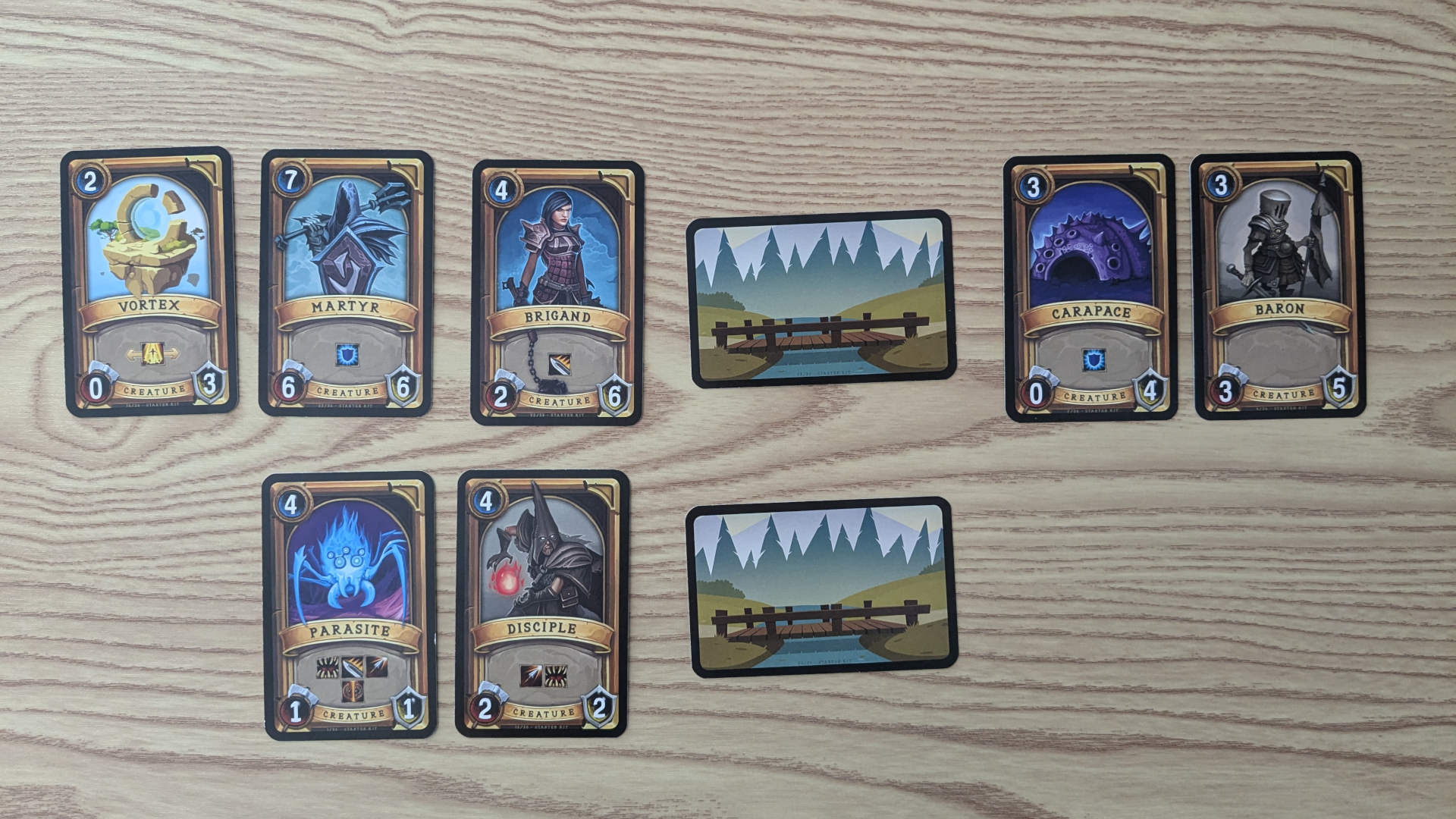
The bastion is a ninth card in a player’s hand and serves as the main health counter for the player. It starts on the leftmost space in their hand and moves one space to the right with each point of damage the bastion receives. When the bastion card travels to the rightmost space in their hand, it is considered destroyed. The bastion card is flipped to its fort side. When the fort card is damage and travels all the way to the right, the fort is destroy and that player loses.
The solo mode plays similarly to the two-player game, but the AI player has a deck of 24-cards. You win by burning through the 24-card deck two times.
Gameplay #
One of my favorite aspects of Clash of Decks is its laser focus on simplicity. With only eight cards to manage, games are quick to set up and play, making the game highly approachable–you can explain the rules in under five minutes. Despite the small card count, it still captures that satisfying card-dueling experience. Cards have different special abilities like splash damage, auras, and immunity to damage from incantations that add a layer of tactics and strategy beyond just “strongest attack wins”.
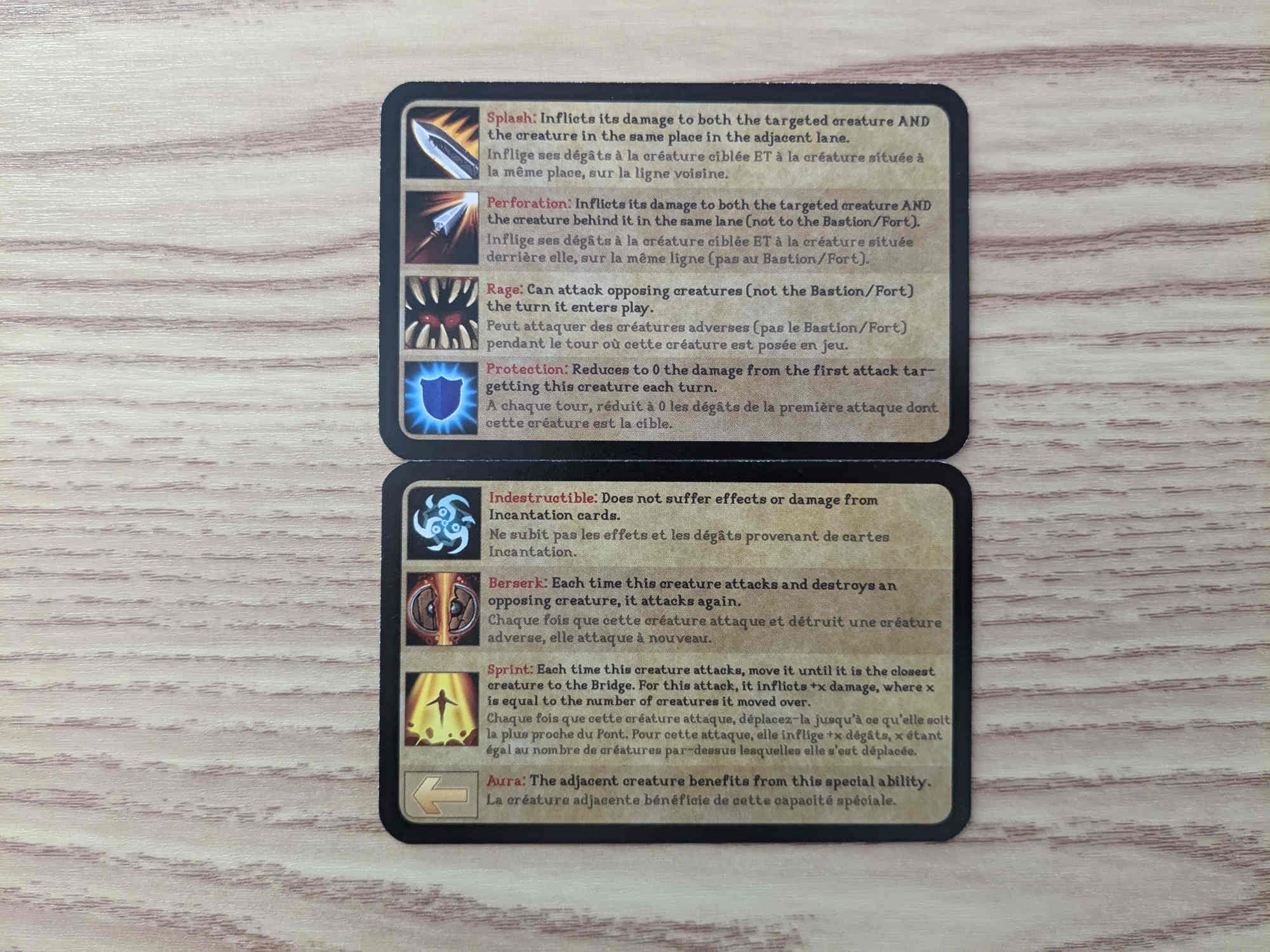
You’ll have those thrilling moments of pulling off a perfect combo or strategically outmaneuvering a powerful creature. Since most card-dueling games tend to focus heavily on multiplayer, it’s refreshing to find one that works so well solo. In fact, you can even tweak the AI difficulty with à la carte modifiers, giving the solo experience more depth and replayability.
The game also does a good job of emulating a lane-based tower defense video game. Choosing which lane to deploy your units in and when to withhold a card for a stronger combo later adds a nice layer of decision-making. Plus, there’s something inherently fun about trying to overwhelm an undefended lane, watching your creatures charge straight into your opponent’s fort.
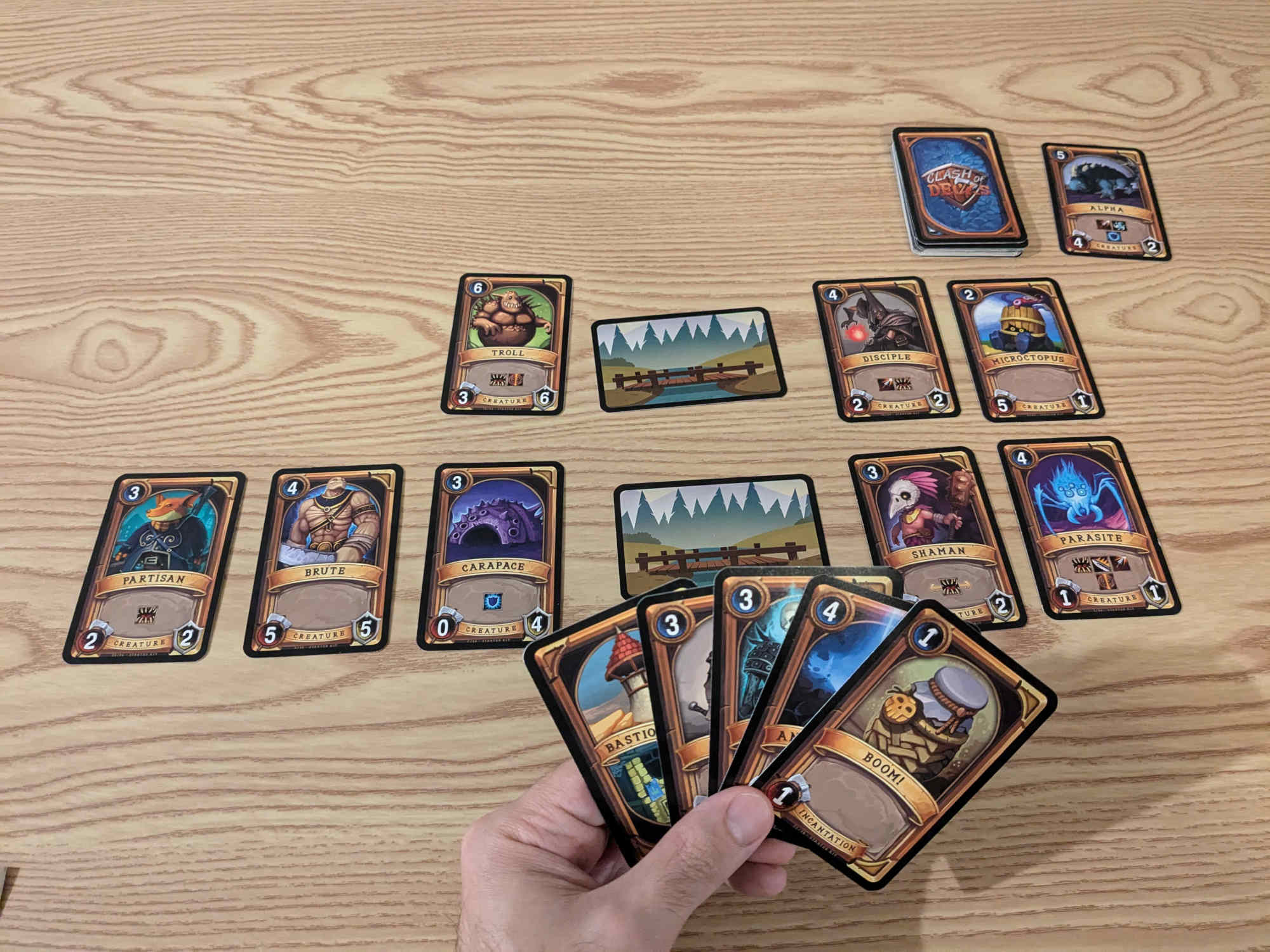
The bastion/fort health counter card is an elegant design solution that forces interesting choices. You might play a stronger card to the right of the bastion, or opt for a weaker one on the left to heal your bastion instead. While I think the mechanic is clever, it can be tricky for new players to grasp at first. I’ve seen a few friends struggle with it, and it can feel unintuitive. Luckily, in solo mode, this isn’t an issue, which makes it even more appealing for solo gamers.
The assault phase, however, can get a bit tedious. There are special abilities to track, and the attack order adds another layer of math. It’s not as complex as some other card games, but it does pull you out of the flow at times. I found myself wishing for some kind of damage markers or tokens to keep track of hits during the attack phase. I get that not including counters was likely a production choice to keep costs down and they are not needed in most cases.
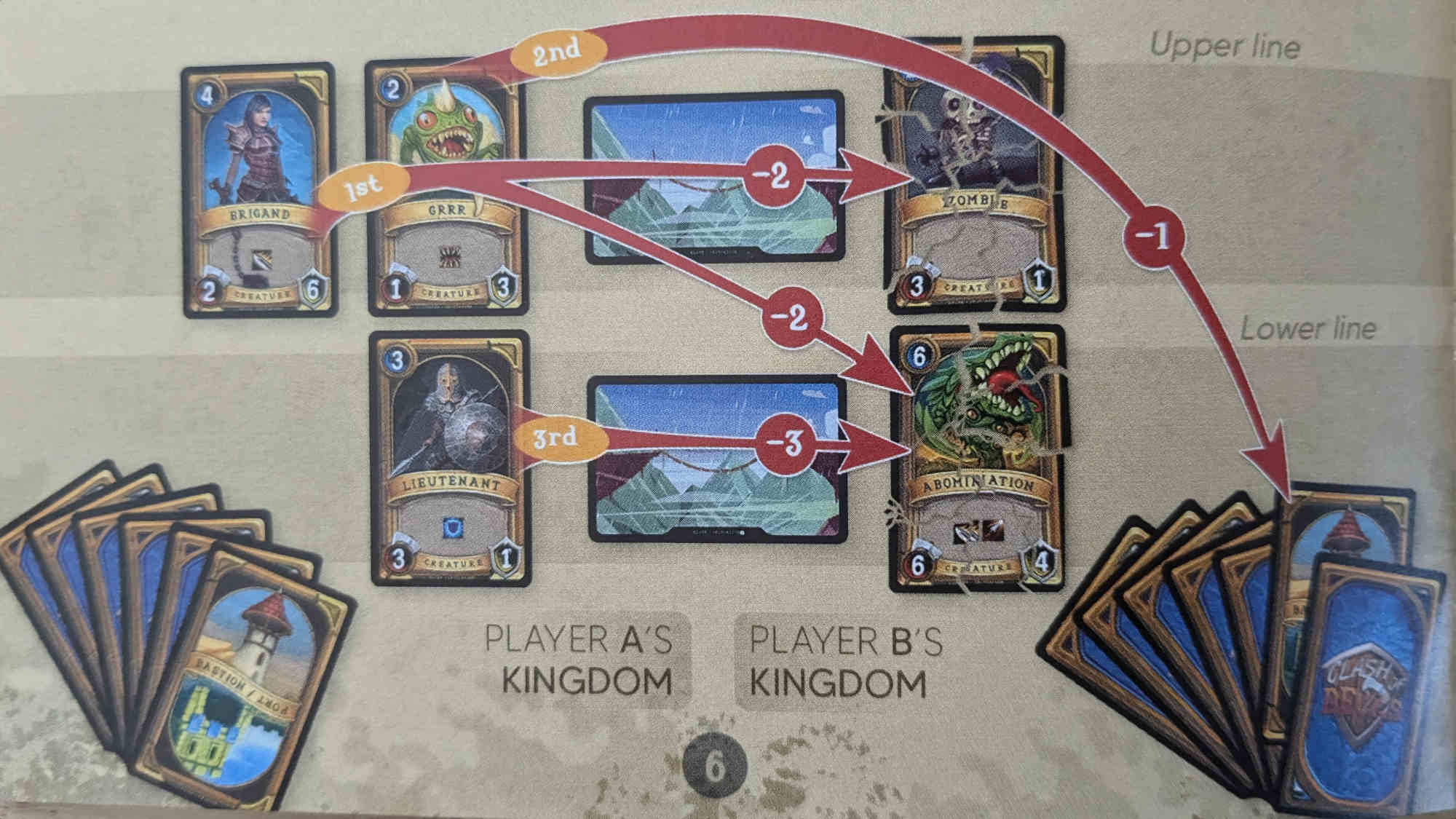
The rulebook is pretty complete, but I had to reread some sections a few times to fully grasp things. The game was translated from French, and I suspect some of the awkward phrasing got lost in translation.
Components and Design #
The graphic design in Clash of Decks is solid, sticking closely to the familiar style of popular card-dueling games, particularly those found in mobile gaming–Hearthstone comes to mind. The symbols for special abilities are easy to read, though there’s a bit of a learning curve since the cards lack explanatory text. Once you’ve got the icons down, though, they’re easy to distinguish. As for the artwork, while well-executed, it leans toward the generic side, drawing clear influences from other games without pushing any creative boundaries. However, there are a few memorable creatures, like the Microctopus, that stand out.
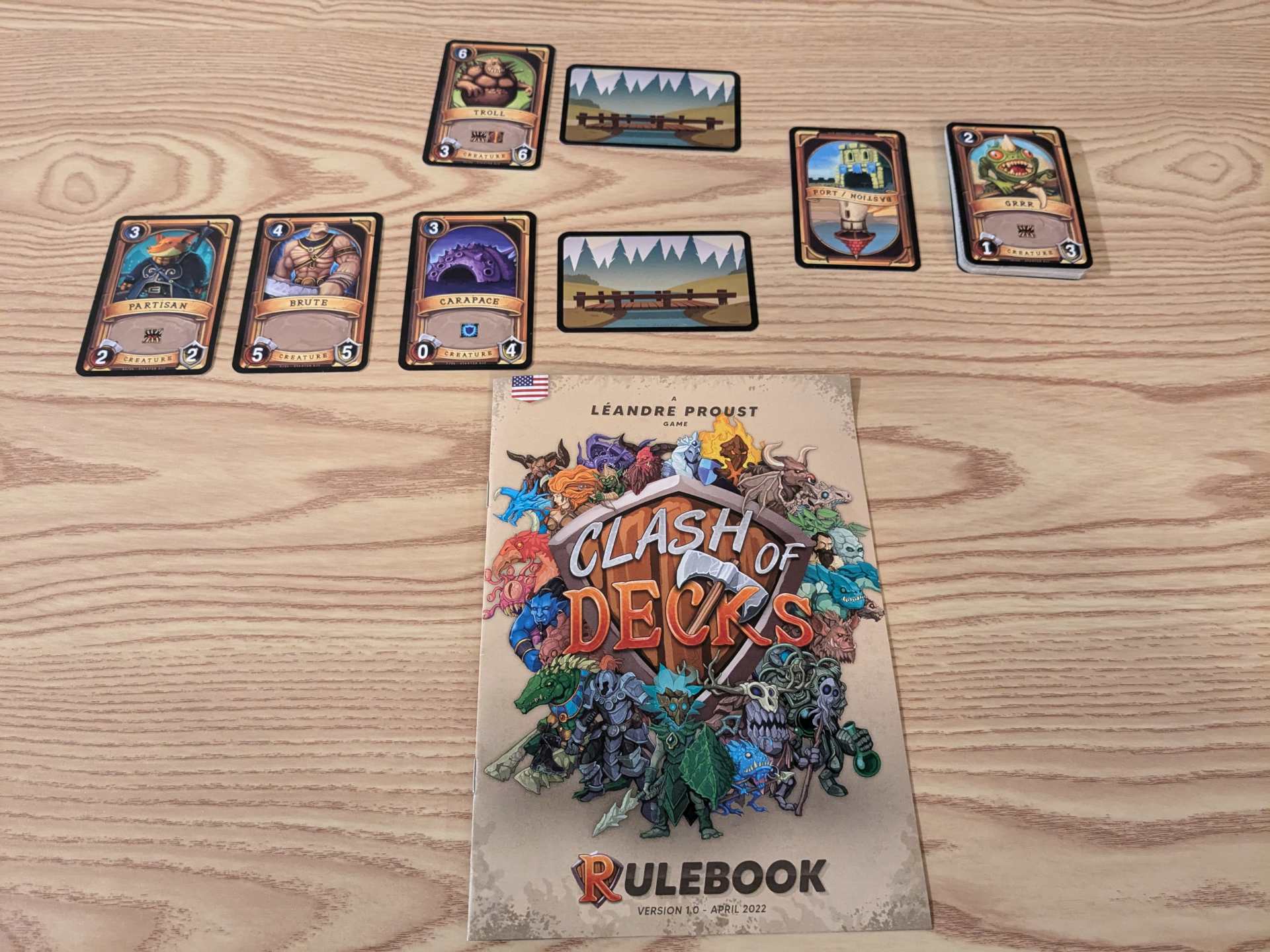
Final Thoughts #
Clash of Decks scratches two recurring itches for me. It blends the satisfying mechanics of card-dueling with the tactical depth of lane-based tower defense, all wrapped up in a quick, compact package. For solo players like me, it offers a gratifying experience without needing to pull out a huge deck or manage tons of resources. It’s affordable, easy to learn, and has a decent amount of replayability, especially with the difficulty modifiers for the AI.
So, if you’re someone who occasionally craves a short and strategic card-dueling game, or occasionally reminisce about Plants vs. Zombies, Clash of Decks might just be your next obsession.
We purchased this product independently. All opinions expressed are independent, honest, and unbiased.
- Tiny decks, big card-battling
- Card-dueling and lane tower defense mash up
- Elegant stronghold health counter mechanism
- Fiddly battle calculations
- Good, but generic theme and art
Learn more about how we rate board games...
